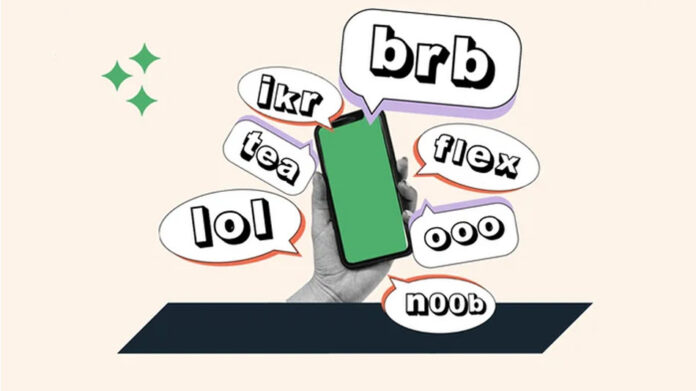Table of Contents
The evolution of the internet has not only revolutionized the way we communicate and share information but has also given birth to a unique lexicon of slang and jargon.
While many of us are familiar with internet acronyms like “LOL,” “ROFL,” and “spam,” few know that these terms have their origins in a relatively obscure corner of the early internet called Usenet.
In this article, we’ll delve into the history of Usenet and explore how it became a breeding ground for some of the most iconic internet slang that continues to shape our online conversations today.
Usenet: The Dawn of Online Communities
Usenet, a term coined from “user network,” emerged in the late 1970s as one of the earliest forms of online communication and community-building.
Developed by Tom Truscott and Jim Ellis at Duke University and later expanded by Steve Bellovin at the University of North Carolina, Usenet was initially designed to facilitate discussions and information exchange among academics and researchers.
It relied on the Network News Transfer Protocol (NNTP) to connect thousands of servers and allowed users to participate in newsgroups dedicated to various topics.
Today, there are several free Usenet trial services available for you to take advantage of, so if you’re ready to explore the world of Usenet, now is the perfect time.
The Birth of Internet Slang
Usenet’s diverse user base and unmoderated nature provided fertile ground for the development of internet slang. As users exchanged ideas and information, they began to develop shortcuts and acronyms to simplify their communication. Over time, many of these abbreviations and terms became part of the global internet lexicon.
LOL (Laugh Out Loud)
One of the most iconic examples of internet slang, “LOL,” which stands for “Laugh Out Loud,” first appeared on Usenet in the early 1980s. This acronym was used to express genuine amusement in response to a humorous comment or post. The term quickly gained popularity and transcended Usenet, becoming a staple of online communication and eventually making its way into everyday conversations.
ROFL (Rolling On the Floor Laughing)
Similar to “LOL,” “ROFL” (Rolling On the Floor Laughing) is another internet slang term that emerged on Usenet. It indicates even more intense laughter and amusement. The abbreviation gained traction in the Usenet newsgroups dedicated to humor and quickly spread throughout the online world, reflecting the internet’s capacity to popularize new forms of expression.
Spam: The Birth of a Nuisance
While “LOL” and “ROFL” signify positive emotions, “spam” originated on Usenet to describe an entirely different phenomenon. In 1978, Monty Python’s Flying Circus, a British comedy group, created a sketch involving the repetitive use of the word “spam” to the point of absurdity. This sketch inspired Usenet users to coin the term “spam” to refer to irrelevant, repetitive, and unsolicited messages flooding the network.
The earliest known usage of “spam” in this context occurred in the mid-1990s when Usenet users identified an influx of excessive, off-topic posts. Gradually, the term “spam” evolved into a catch-all term for unwanted and often malicious messages, giving birth to the modern spam email, which continues to plague our inboxes today.
Flame Wars: Heated Online Debates
Usenet was not just about friendly exchanges; it also witnessed the rise of “flame wars.” A flame war refers to a heated and often personal exchange of insults and aggressive language between users. The term “flame” in this context originally referred to a vitriolic or angry message posted in response to another user’s comments.
Flame wars became a notable aspect of Usenet culture, as passionate discussions sometimes escalated into bitter arguments. The concept of flame wars, while originating on Usenet, has persisted throughout the Internet’s history, especially in online forums, social media, and comment sections.
Trolls: The Mischievous Internet Inhabitants
Usenet was also the birthplace of the term “troll” as it is known in today’s online lingo. The term originally referred to a user who intentionally posted provocative, misleading, or incendiary comments with the intent to provoke and disrupt discussions. These users were often likened to mythical trolls who sought to create chaos.
Usenet users quickly adopted the term “troll” to describe such behavior, and it later spread across the internet to label individuals engaging in similar disruptive tactics. Trolling has since evolved and expanded to encompass a wide range of online behaviors, from harmless pranks to more malicious harassment.
Usenet’s Legacy in Modern Internet Slang
While Usenet’s popularity has waned over the years, its impact on internet culture endures. The slang and jargon that originated on Usenet continue to shape the way we communicate online. As the internet evolved and expanded, these terms found their way into various other online communities, forums, and social media platforms, making them a fundamental part of our digital language.
The cultural significance of Usenet in shaping Internet slang can be seen in how these terms have become part of our everyday conversations. Phrases like “LOL,” “ROFL,” and “spam” are no longer exclusive to the internet but have seamlessly integrated into our offline speech. They have become emblematic of the internet’s ability to foster new modes of communication and adapt them to mainstream culture.
Conclusion
Usenet, the early pioneer of online communication and communities, played a pivotal role in shaping the internet slang we use today.
Terms like “LOL,” “ROFL,” “spam,” “flame war,” and “troll” were all born from the fertile grounds of Usenet. These terms not only continue to define the way we communicate online but have also permeated everyday conversation, illustrating the profound impact of Usenet on our digital culture.
As we navigate the internet, it’s essential to acknowledge and appreciate the roots of the jargon that have become an integral part of our online and offline interactions.















